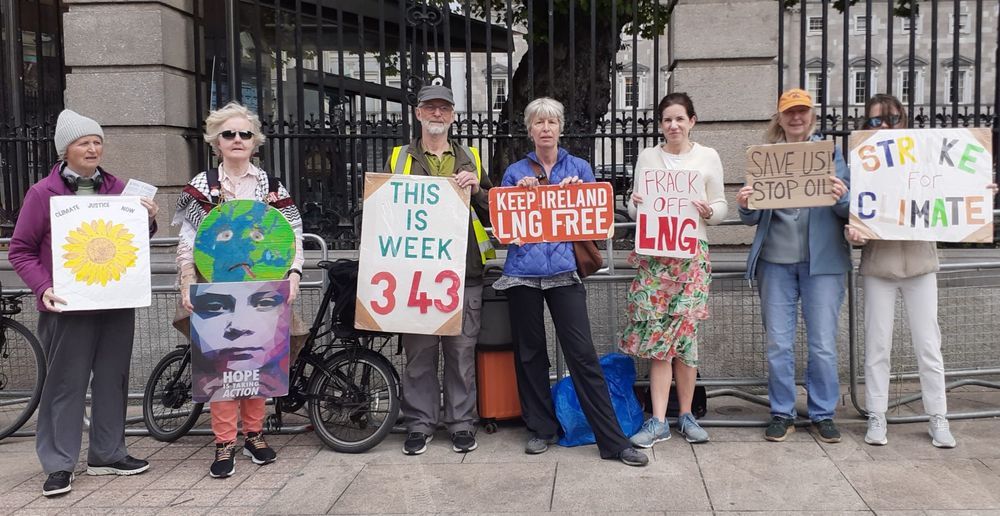

Developer interests need something to deflect from real failures of a system which has been deliberately designed by them to produce profit, not homes.

Developer interests need something to deflect from real failures of a system which has been deliberately designed by them to produce profit, not homes.

Do come along if you’re free.

Do come along if you’re free.



www.rte.ie/radio/radio1...

www.rte.ie/radio/radio1...
Good new science-informed "Report on proposed Carbon Budgets" from (parliamentary) Oireachtas Joint Committee on Climate, Environment and Energy'.
Recommendations 1-10 echo scientific & eNGO concerns for CB transparency in meeting Paris Agreement goals.
data.oireachtas.ie/ie/oireachta...








Why is it so important to reduce methane (CH4) emissions from agriculture in the near term?
What happens when countries like #Ireland use ‘no additional warming’ to set climate targets?
PAPER: iopscience.iop.org/article/10.1...
(1/18)

Why is it so important to reduce methane (CH4) emissions from agriculture in the near term?
What happens when countries like #Ireland use ‘no additional warming’ to set climate targets?
PAPER: iopscience.iop.org/article/10.1...
(1/18)
Ireland is our case study in a new paper 🔗 doi.org/10.1088/1748...
We found it:
(1)Grandfathers high emissions from wealthy livestock nations, (2)Shifts burden,
(3) Fails on food security
#Methane #ClimateJustice
Ireland is our case study in a new paper 🔗 doi.org/10.1088/1748...
We found it:
(1)Grandfathers high emissions from wealthy livestock nations, (2)Shifts burden,
(3) Fails on food security
#Methane #ClimateJustice
Complacency benefits the sector's big profit-takers in the short-term, but the public & nature bear the cost.
The CCAC could say so.
/fin
Complacency benefits the sector's big profit-takers in the short-term, but the public & nature bear the cost.
The CCAC could say so.
/fin
‘We live for a few short decades, if we are lucky, on this miraculous planet. It’s remarkable, and we ought to pay attention to its everyday glories. We are nature, you and me; it isn’t something abstract’ @herdyshepherd.bsky.social, James Rebanks.

‘We live for a few short decades, if we are lucky, on this miraculous planet. It’s remarkable, and we ought to pay attention to its everyday glories. We are nature, you and me; it isn’t something abstract’ @herdyshepherd.bsky.social, James Rebanks.
‘Yes, and how many times can a man turn his head
And pretend that he just doesn't see?’

‘Yes, and how many times can a man turn his head
And pretend that he just doesn't see?’

I've just emailed EU politicians to demand the suspension of the EU-Israel Association Agreement.
➡️ Send your email now and make a difference. share.greens-efa.eu/s/JKiMWZKN

I've just emailed EU politicians to demand the suspension of the EU-Israel Association Agreement.
➡️ Send your email now and make a difference. share.greens-efa.eu/s/JKiMWZKN

www.irishtimes.com/opinion/2025...

www.irishtimes.com/opinion/2025...
Next week you can send in questions for the extended 200th edition!
www.todayfm.com/podcasts/the...
Next week you can send in questions for the extended 200th edition!


